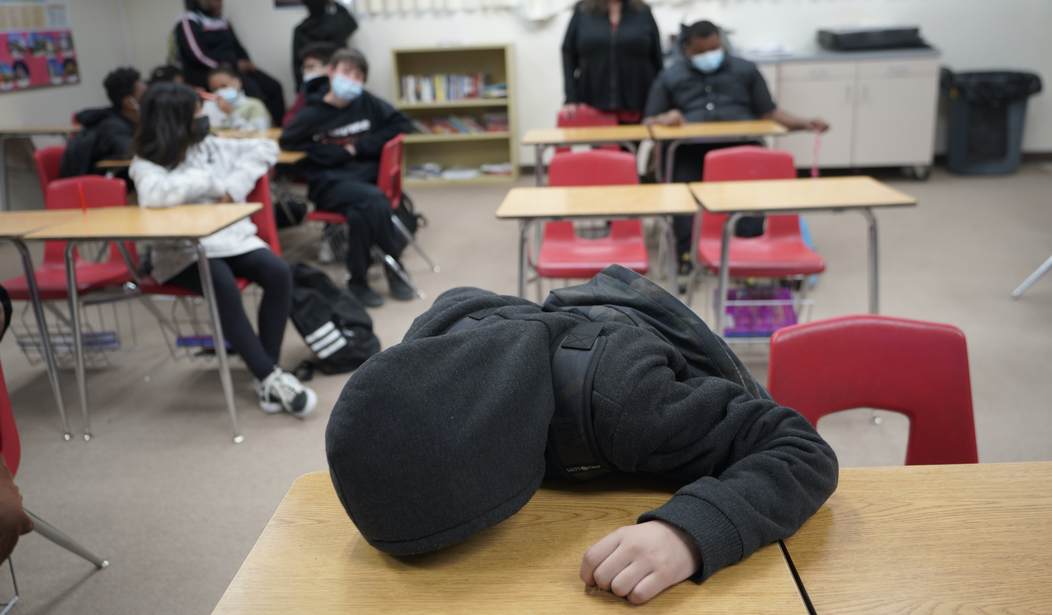Illinois Gov. Jay Robert Pritzker is running for president. The Democratic Party's field of presidential candidates seeking the nomination is long and undistinguished. It says something horrible about the Democrats that J.B. Pritzker is considered one of the front-runners.
Pritzker signed a bill last week that some mental health experts think could be one of the most damaging pieces of legislation ever inflicted on children. The bill would require all students from third to twelfth grade to undergo mental health screening annually.
Abigail Schrier, author of "Bad Therapy," which she says is "an investigation into the surge in adolescent mental-health diagnoses and psychiatric prescription drug use," says that the potential harm of these "screenings" can be catastrophic. The number of "false-positives" from these screenings for mental illness approaches 97%, and her research has shown irreparable harm and dependence on psychiatric drugs.
"Many young people without serious mental illness nonetheless spend years languishing with a diagnosis, alternately cursing it and embracing it, believing they have a broken brain, convincing themselves that their struggles are insurmountable because of the disorder’s constraints," Schrier writes.
Screening is where it all starts. Here are some sample questions from a mental health screening tool by the National Institute of Mental Health (NIMH).
1. In the past few weeks, have you wished you were dead?
2. In the past few weeks, have you felt that you or your family would be better off if you were dead?
3. In the past week, have you been having thoughts about killing yourself?
4. Have you ever tried to kill yourself? If yes, how? When?
"Ask a kid repeatedly if he might be depressed — how about now? Are you sure? — and he just might decide that he is," notes Schrier.
Introduce “gender dysphoria” into a peer group, and a swath of seventh grade girls are likely to decide they were born in the wrong body. Introduce “testing anxiety” or “social phobia,” or “suicidality” to them, and many teens are likely to decide: I have that, too. There is a reason clinicians keep anorexia patients from socializing unsupervised in a hospital ward; anorexia is profoundly socially contagious.
Illinois State Superintendent of Education Tony Sanders said in a Thursday press release, "Too often, we only recognize a student's distress when it becomes a crisis. With universal screening, we shift from reaction to prevention. The earlier we identify a need, the better support we can provide to that student to help them thrive — in school and in life," reports Reason.com.
What do mental health "experts" tell us about screening kids every year?
Dr. Allen Frances, a Duke University professor of psychiatry, is the author of the "Diagnostic and Statistical Manual of Mental Disorders (DSM), fourth edition. This is the so-called "psychiatric bible" used by clinicians around the world. He told Schrier, “Most kids who screen positive will have transient problems, not a mental disorder. Mislabeling stigmatizes and subjects them to unnecessary treatments, while misdirecting very scarce resources away from kids who desperately need them.”
In fact, there is no proof that mental health screeners have ever been shown to improve mental health outcomes. Nor are screeners capable of identifying who the next school shooter will likely be. They are poor at identifying which kids likely have depression, since they are not sensitive enough to distinguish it from normal periods of sadness. They do not even reliably indicate which kids are at risk of suicide.
What mental health surveys reliably produce is false positives. Screening for low-probability diagnoses like suicidality or clinical depression will inevitably generate a surf of misdiagnosis. It isn’t hard, mathematically, to see why.
Whenever you screen very large numbers of people for very low-incidence conditions, even with good tests, false positives will overwhelm accurate diagnoses. Making reasonable assumptions about the suicide rate in an adolescent population, the overwhelming majority of students flagged for suicidality will be false positives. “If you do the statistical calculation, you discover that the false positive rate is about 97 percent,” said Stephen J. Morse, professor of law and psychiatry at the University of Pennsylvania. That’s a lot of kids whose lives and self-conceptions the state will have altered with false alarms.
"Alleviating the teen-mental-health crisis may require something that is not altogether comfortable for adults: trusting that teenagers will know when they need help," concluded Atlantic writer Olga Khazan in an article on teen mental health. "We may need to make treatment available, but not obligatory. Teens have plenty of obligations as it is."
The human brain is the most extraordinary and complex organ in the animal kingdom. There is nothing like it anywhere. To presume that screening can suss out mental illness is beyond stupid. The marriage of politics and science has once again produced a nightmare for parents and society.
Schrier demands that we "Stop Asking Kids if They're Deprressed." That's an excellent place to start.
Help PJ Media continue to tell the truth about the Trump administration's accomplishments as we continue to usher in the Golden Era of America. Join PJ Media VIP and use promo code FIGHT to get 60% off your membership.









Join the conversation as a VIP Member